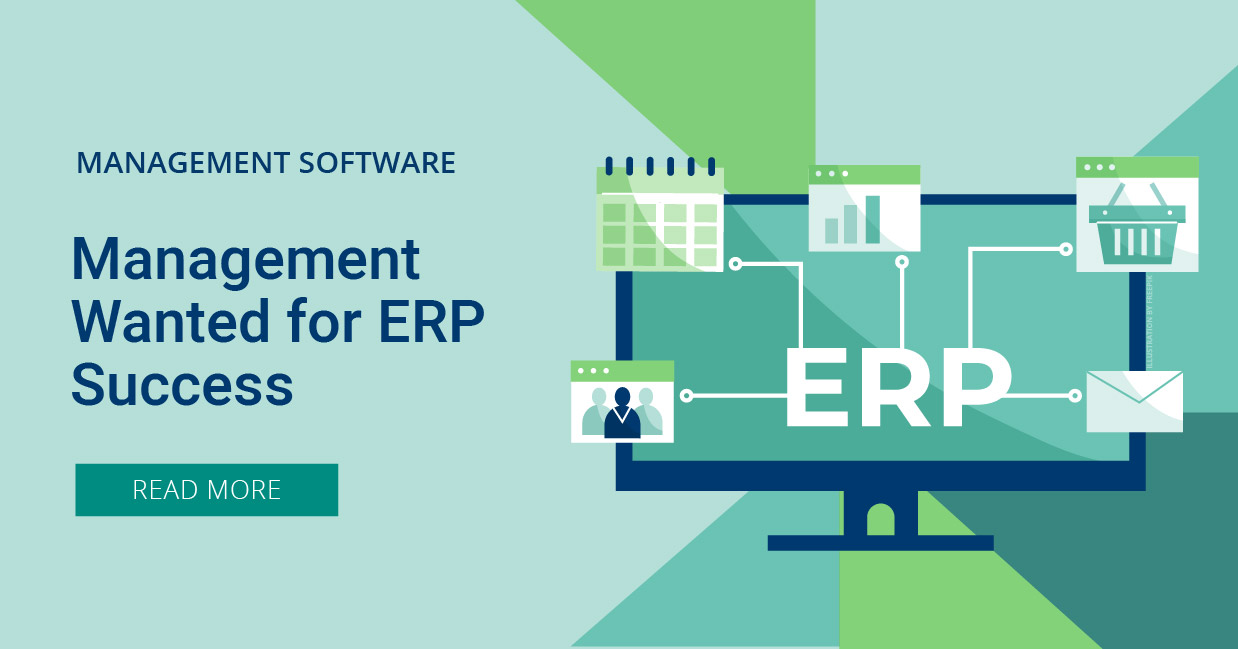
Striving for ERP success? Wanted: Management!
The choice for a new ERP software system is one of the most critical decisions a business owner or senior manager can make, as this choice commits an organisation and its employees to operate in a particular way for many years. And yet, it’s frequently the owners and managers that are one of the main causes of failed implementation projects. Not due to how much they contribute to these projects, but for rather how much they don’t. Therefore, wanted: management!
Implementing an ERP solution or a digital transformation initiative is much more than just buying some products and services.
When you have furniture delivered, you’ll naturally check whether the number of items corresponds with what has been ordered and, possibly, also check for imperfections. For a software implementation however, matters are quite a bit more complicated. After all, this is a people-oriented project.
It is certainly also the case for a software implementation that you want to check whether you have received all the functionality and user rights that have been ordered. However, that is only the beginning, since these are no longer just technical projects anymore.
These days, implementations are about business transformation, company culture and organisational change. It requires changing business processes, report formats, working methods, cooperation between team members and departments and how you as an organisation interact with your customers and the rest of the outside world.
Often, your employees will have a resistance towards change, which is completely normal given that they might fear for losing their position, or lose internal power due to important information being shared, or even be afraid that their achievements will be under closer scrutiny. Especially as most of us human beings have difficulties coping with uncertainty in general.
This is exactly where your senior management comes in, by providing information at an early stage about:
- Why a new software system is necessary
- What are the high-level business goals of the project
- Why working methods and processes need to be changed
- What the impact of the implementation on the team will be
- What will be in the best interest of the individual employee, with regards to this process
and by having a key role in:
- Taking clear decisions
- Dividing attention between the implementation process and “this one very important customer”
- Motivating their staff, if some are losing their courage in difficult moments or if they no longer have the overview.
Many managers still believe that signing the purchase contract for the software is about as much as they need to contribute, however this is a huge error of judgment!
So, for all managers; at the kick-off of your next ERP project, I therefore invite you to not miss a chance to get ‘on your soapbox’ and lead your team to project success!
August 16, 2022
RECENT POSTS
Business Central How-To: FastTabs & FactBoxes
Business Central, a user-friendly ERP system, has plenty of terminologies specific to the product, and if you’re moving across to BC from some other program, or even considering an upgrade from NAV to BC, it [...]
How Does Business Central Handle Inventory Management?
Inventory Management is a module in Business Central that helps SMBs manage their inventory and other operations within a single platform. SMBs can track, manage, and optimise stock levels across locations. Microsoft Dynamics [...]
How Does Business Central Benefit Manufacturing Companies?
Manufactured products are part of everyone's lives. From the car that you drive, the mobile phone that you use, to the milk that you drank for breakfast. Companies that create these products must [...]


